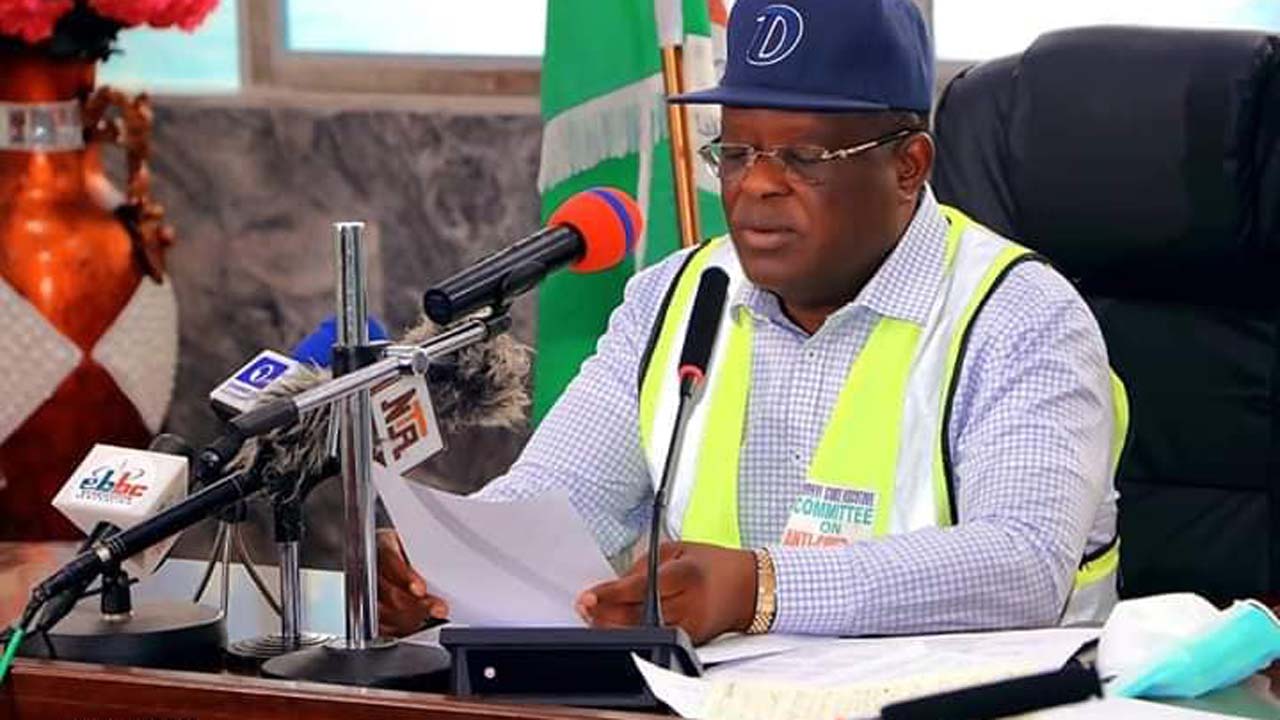Place your adverts here on InfoDig @ low rates; banner ads, sponsored links and guest articles etc. Contact us
On Friday, September 27, 2024, the global tourism community rolled out colourful drums to celebrate this year’s edition of the annual World Tourism Day, a day set aside to highlight the contribution of tourism to global peace, cultural harmony and economic development.
While the global celebration was marked in Georgia, the home country of Zurab Pololikashvili, secretary general, UN Tourism, other countries of the world marked the day in their own unique styles, but all in line with the central theme: ‘Tourism and Peace’.
In Nigeria, the momentous day was marked at the FCT Arts Pavilion in Abuja.
For Lola Ade-John, Minister of Tourism, Nigeria’s commitment to using tourism as a force for promoting peace, fostering understanding, and driving economic development, cannot be compromised.
Speaking in line with the theme, Ade-John highlighted the vital role of tourism in advancing national and global peace efforts.
The minister reflected on the profound impact of tourism beyond its traditional economic contributions, noting that tourism brings people and cultures together, helping to dissolve prejudices and build mutual respect.
She emphasized that, in today’s world, where divisions are more pronounced, tourism serves as a bridge to foster harmony.
“Tourism is more than an industry; it is a pathway to peace and reconciliation,” she remarked.
Read also: Cross River State Tourism Bureau wins big at Akwaaba 2024
Referencing the projections from the World Travel and Tourism Council (WTTC), which showed that Nigeria’s tourism sector is set to create 2.6 million new jobs in the coming decade, contributing N12.3 trillion to the economy by 2032, she pointed to the potential of tourism as well as reasons to support the sector. While the figures illustrate immense economic potential, the minister stressed that the true power of tourism lies in its ability to foster unity, break down barriers, and support inclusive growth.
“Every interaction between a visitor and a host is an opportunity to build bridges of understanding.
“Our goal is not only to promote Nigeria’s beauty and culture but to leverage these experiences to create a peaceful and prosperous nation,” she noted.
Ade-John also used the World Tourism Day platform to outline a series of strategic actions that unlock the full potential of Nigeria’s tourism sector.
The ministry, according to her, is focused on driving sustainable development through a robust National Tourism Policy in collaboration with the Nigeria Economic Summit Group and the Tourism Development Master Plan, which are both being revitalized under the leadership of President Bola Ahmed Tinubu.
A key component of the plan is the reactivation of the Presidential Council on Tourism, aimed at providing the leadership and framework necessary to steer the industry forward.
Additionally, the minister discussed the ongoing efforts to embrace digital transformation within the tourism industry, which involves leveraging technology to improve Nigeria’s tourism infrastructure, including the creation of a comprehensive tourism database, website, mobile app, and virtual tours. The initiatives, according to her, are supported by private sector partnerships with companies like Cavista Holdings, and they are designed to make Nigerian tourism more accessible and appealing to global audiences while empowering the country’s tech-savvy youth.
She also emphasized the importance of reinvigorating Nigeria’s tourist attractions, such as the Obudu Mountain Resort and Yankari Game Reserve, through collaboration with state governments. The partnerships, focused on infrastructure development and investment, aim to enhance visitors’ experiences while stimulating local economies.
She stressed the need for community-based tourism programmes that will uplift local communities, especially women and the youth. Through initiatives such as the EcoGenesis Incubator Series, the ministry, according to the minister, is committed to skills development and entrepreneurship, providing opportunities for Nigerians to fully participate in the benefits of tourism. The above efforts are directly tied to reducing poverty and fostering peace within communities, addressing some of the root causes of conflict.
The minister also highlighted the need to integrate tourism into Nigeria’s education system, an initiative designed to foster a deep appreciation for cultural heritage from an early age. In collaboration with the Ministry of Education, the inclusion of Tourism and History subjects into the national curriculum ensures that future generations understand the significance of Nigeria’s rich cultural landscape, helping to promote both tourism and national unity.
She noted that sustainable tourism, which respects local communities and the environment, is central to the ministry’s agenda, as she believes that by promoting eco-friendly travel, Nigeria can protect its natural treasures, while fostering a sense of pride and ownership among its citizens, leading to more peaceful and harmonious communities.
Read also: FTAN celebrates private sector for sustaining tourism, calls for inclusivity, collaborations
Reflecting on Nigeria’s tourism potential, the minister reaffirms the country’s commitment to using tourism as a force for good. By fostering international partnerships, preserving cultural diversity, and creating opportunities for marginalized communities, Nigeria’s tourism sector, she noted, is poised to make significant contributions to both national development and global peace-building efforts.
“Our tourism industry is growing at an incredible rate.
“With President Tinubu’s visionary leadership and our collective efforts, we have an unprecedented opportunity to leverage this growth not just for economic gain, but for peace and prosperity. Let us move forward with the understanding that every journey, every interaction, can be a step toward a more peaceful and united world,” she noted.
However, she concluded with a call to action, inviting all stakeholders; from governments and private enterprises to local communities, to work together in building a tourism industry that promotes peace, fosters development, and uplifts the most vulnerable among Nigerians

 2 hours ago
32
2 hours ago
32














 English (US) ·
English (US) ·